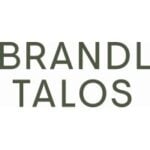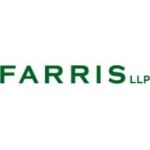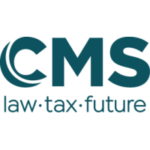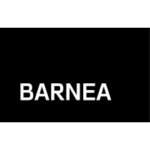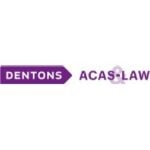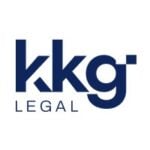-
Does your jurisdiction have a class action or collective redress mechanism? If so, please describe the mechanism and outline the principal sources of law and regulation and its overarching impact on the conduct of class actions in your jurisdiction.
Regarding consumer litigation, there exist special Acts1 that permit particular consumer organizations certified by the Prime Minister to represent the interests of multiple consumers by bringing a claim as a plaintiff. Herein, we explain in detail the distinction between (i) litigation carried out by a Qualified Consumer Organization (a ‘QCO’) and (ii) court proceedings carried out by a Specified Qualified Consumer Organization (an ‘SQCO’), which are special litigation proceedings created to protect consumer interests.
i. Qualified Consumer Organization Actions
There is a system under which QCOs may file for an injunction against certain unjust acts of business operators (‘QCO Action’)2. The Consumer Contract Act was amended in 2006 (came into effect in 2007) and this amendment introduced a system which permits QCOs to bring litigations on behalf of consumers. QCOs may, in the interest of multiple unspecified consumers, demand that business operators cease or prevent certain acts or take necessary measures to cease or prevent such acts (collectively, ‘Injunction, etc.’). Consumers can receive the benefits of such actions even if they did not participate therein.
ii. Specified Qualified Consumer Organization Actions
In October 2016, the Act on Special Measures Concerning Civil Court Proceedings for the Collective Redress for Property Damage Incurred by Consumers (Act No. 96 of 2013) (the ‘Special Act’), permitting SQCOs to carry out court proceedings, came into effect.3 Based on the Special Act, SQCOs may file for Court Proceedings for Redress for Damage (‘SQCO Action’) against business operators4 in certain cases where similar monetary damage was incurred by a considerable number of consumers in relation to consumer contracts.
An SQCO Action involves the procedures outlined below.
First Stage
The first stage is the Litigation Seeking Declaratory Judgment on Common Obligations (‘CO Litigation’).5 In this stage, the court is tasked with confirming whether the defendant owes any monetary obligation to a considerable number of consumers (‘Common Obligation’) based on existing facts and legal causes common to those consumers. At this stage, the consumers have yet to be specifically identified and may not intervene.
Second Stage
Only when (a) the Common Obligations of the defendant have been confirmed by the judgment in the CO Litigation (the first stage) in favour of the plaintiff SQCO; (b) the CO litigation finishes through a business operator’s acknowledgement of the claim; or (c) the CO Litigation finishes through a settlement acknowledging the existence of the Common Obligation, does the second stage (Simple Determination Proceedings) begin. The purpose of this procedure is to determine the specific claims pertaining to the confirmed Common Obligations (‘Target Claims’) and the claims for settlement with respect to those identified Target Claims (‘Settlement Claims’; together with Target Claims, collectively, ‘Target Claims, etc.’; consumers who hold Target Claims, etc. collectively, ‘Target Consumers, etc.’). At this stage, consumers may opt in via delegation to the plaintiff SQCO. In addition, the court confirms (i) whether or not any monetary obligations are owed by the defendant and (ii) the amount of damages in relation to each consumer. The first and second stage judgments do not bind consumers who did not opt in. If the court confirms that the consumers have the right to monetary relief from the defendant, the plaintiff SQCO collects money from the defendant and distributes it to each consumer.
Footnote(s):
1 The Consumer Contract Act (Act No. 61 of 2000); the Act against Unjustifiable Premiums and Misleading Representations (Act No. 134 of 1962); the Act on Specified Commercial Transactions (Act No. 57 of 1976); and the Food Labelling Act (Act No. 70 of 2013) permit a QCO Action, and the Act on Special Measures Concerning Civil Court Proceedings for the Collective Redress for Property Damage Incurred by Consumers (Act No. 96 of 2013) permits an SQCO Action.
2 Article 12 of the Consumer Contract Act; Article 34 of the Act against Unjustifiable Premiums and Misleading Representations; Articles 58-18 to 58-24 of the Act on Specified Commercial Transactions; and Article 11 of the Food Labelling Act.
3 The Special Act was amended in June 2022, and the amended Special Act came into force from October 1, 2023. This Review is based on the amended version of the Special Act and, unless otherwise noted, article numbers refer to articles thereof.
4 Under the amended Special Act, SQCOs may file for such court proceedings against not only business operators but also their relevant individuals in certain cases.
5 Article 3 of the Special Act
-
What is the history of the development of the class actions/collective redress mechanism and its policy basis in your jurisdiction?
The system for QCO Actions was first introduced with the 2006 amendment to the Consumer Contract Act (enacted in June 2007), was later expanded to include the Act against Unjustifiable Premiums and Misleading Representations and the Act on Specified Commercial Transactions in 2008 (enacted in April 2009) and was further expanded to the Food Labelling Act in 2013 (enacted in April 2015). This system was introduced with the aim of safeguarding consumer interests by preventing and controlling the spread of similar disputes, considering the characteristics of consumer transactions where small-scale yet highly complex legal issues arise diffusely.
On the other hand, QCO Actions do not aim to recover damages for consumer harm that has already occurred. While consumer damages are often minor, filing a lawsuit to seek recovery requires considerable costs and effort, and there is no guarantee that recovery will be achieved at the time of filing. Furthermore, some consumers are unaware that they can claim recovery for damages, and there are also consumers who do not realize they have been harmed in the first place. Therefore, in light of the nature of consumer harm spreading diffusely, the Special Act was enacted to establish a special litigation system aimed at achieving collective recovery for consumer damage, and it entered into effect on October 1, 2016.
-
What is the frequency of class actions brought in your jurisdiction, in terms of number of cases over the years and/or comparison to other types of litigation?
QCO Actions
From the introduction of QCO Actions in June 2007 through the end of August 2023, QCOs sought an Injunction, etc. against about 950 business operators. Thus, it can be said that it is well-established in practice. Most cases were resolved outside, and prior to the filing of, the QCO Actions. In terms of the number of QCO cases filed in court, a survey shows that there have been 85 cases filed since the introduction of the system until March 2023. Given the fact that the total number of civil litigations filed in district court within the year of 2023 (for only one year) is over 130,000, the portion of QCO Actions is very small.
SQCO Actions
From October 2016, when the Special Act took effect, to 5 May 2025, SQCO Actions were filed against only 9 business operators. Refund requests by SQCOs outside the proceedings are also not as common as requests for an Injunction, etc. by QCOs. The portion of SQCO Actions in the litigations overall is even smaller than QCO Actions.
-
Are there certain courts or types of claims that are most prevalent (for example competition vs commercial litigation generally)?
In ordinary civil lawsuits, in principle, the summary courts have jurisdiction over the first instance for claims not exceeding JPY 1.4 million, and the district courts have jurisdiction over the first instance for claims exceeding JPY 1.4 million. In contrast, both QCO Actions and CO Litigation for SQCO Actions fall under the jurisdiction of the district court in the first instance and are not filed in the summary courts (see also our answer to question 14). QCOs and SQCOs primarily handle cases in their respective regions. As there are 26 QCOs across Japan, there is no particular trend for QCO Actions to be filed predominantly in any specific regional district court. On the other hand, there are currently only 4 SQCOs, and they are located in Tokyo, Osaka, Saitama and Sapporo. Therefore, SQCO Actions are more likely to be filed in the district courts of these regions compared to other regions.
Regarding the cases where QCO Actions were filed for injunctions against businesses, according to the statistics in 2021, approximately 86% of such cases were based on the Consumer Contract Act. Over 95% of these were due to unfair clause restrictions under the Consumer Contract Act (the remainder being due to unfair solicitation restrictions), making this type of case the most common. As for SQCO Actions, there have only been a total of 9 cases filed as of May 2025, making it difficult to analyse trends. However, there were multiple cases where damages were sought in tort due to discriminatory selection in university entrance exams and where claims were made for the return of contract fees to businesses based on cooling-off periods under the Act on Specified Commercial Transactions.
-
What is the definition of 'class action' or 'collective redress' relevant to your jurisdiction?
Under Japanese law, the terms ‘class action’ and ‘collective redress’ are not used and not defined.
-
What are the general 'triggers' for commencement of a class action or collective redress in your jurisdiction from a factual perspective?
For QCO Actions, QCOs have the authority to initiate the procedure, and for SQCO Actions, SQCOs have the authority to initiate the same. Therefore, these procedures are initiated by QCOs and SQCOs collecting information about the incidents in question through consumer consultations, media reports or other sources and then deciding to seek voluntary correction from the business operators or to file a lawsuit.
-
How do class actions or collective redress proceedings typically interact with regulatory enforcement findings? e.g. competition or financial regulators?
The Special Act stipulates a system to provide an SQCO with information obtained by administrative agencies. Specifically, at the request of an SQCO, the Consumer Affairs Agency may provide the SQCO with documents prepared with respect to a disposition under the Act on Specified Commercial Transactions or the Act on Deposit Transactions (Act No. 62 of 1986) to the extent necessary for the proper pursuit of an SQCO Action.6 The SQCO may not use the documents for any purpose other than the SQCO Action.7 This system is currently available only for documents prepared with respect to a disposition under these two Acts, but not for other laws such as the Act against Unjustifiable Premiums and Misleading Representations.
On the other hand, while there is a possibility that regulators such as the Consumer Affairs Agency may refer to publicly available information about QCO Actions or SQCO Actions in the course of regulation and enforcement, there is no statutory system in place for the QCOs or SQCOs to provide information to the regulators.
Footnote(s):
6 Article 96, paragraph (1) of the Special Act
7 Article 96, paragraph (2) of the Special Act
-
What types of conduct and causes of action can be relied upon as the basis for a class action or collective redress mechanism?
QCO Actions
QCOs may file a petition only for an Injunction, etc. against the unjust acts of business operators listed under the relevant Acts. For instance, under the relevant Acts, unjust solicitation, contracts of adhesion and false or exaggerated representations may be subject to a QCO Action.
SQCO Actions
While SQCO Actions do not limit the covered conduct and causes, the Special Act does limit the scope of the claims that may be brought in an SQCO Action. See our answer to question 9.
-
Are there any limitations of types of claims that may be brought on a collective basis?
i. Claim Limitations
QCO Actions
QCOs may file a petition only for an Injunction, etc. against the unjust acts of business operators listed under the relevant Acts.
SQCO Actions
SQCO Actions are limited to claims concerning consumer contracts.8 Therefore, for instance, SQCOs may not bring a claim for damages against the issuer of an annual securities report based on false information, because this does not involve a direct contract between the issuer and consumers.
In addition, SQCOs are only permitted to bring monetary claims.9 This means that SQCOs do not have the right to bring a claim for other relief, such as the recall, replacement, or repair of defective products.
Moreover, the claims that may be brought are limited to those that fall under the categories listed below:10
- a claim for the performance of a contractual obligation;
- a claim pertaining to unjust enrichment;
- a claim for damages based on the non-performance of a contractual obligation;
- a claim for damages based on a tort under the Civil Code (Act No. 89 of 1896); and
- a claim for damages caused by employees with respect to the execution of business.11
As set forth in item (iv), with respect to tort damages, SQCOs may only bring a claim for damages arising from tort under the provisions of the Civil Code; thus, a claim for tort damages under special acts such as the Product Liability Act (Act No. 85 of 1994) may not be brought in an SQCO Action. Pursuant to an amendment of the Special Act, damages for mental suffering (so-called consolation money), which were excluded from the scope of the claims that could be made before the enforcement of the amended Special Act, are permissible when major facts that serve as the basis for calculating damages are common to a considerable number of consumers, and in conjunction with the foregoing, when either (a) such claim for consolation money is made together with a claim for property damage or (b) the relevant harm was caused intentionally.12
ii. Range of Possible Defendants
QCO Actions
In principle, a business operator, a trustee of the business operator, or an agent of either of the foregoing, who has been engaging in or is likely to engage in any of the acts specified in the relevant Acts may be named as the defendant in a QCO Action.13
SQCO Actions
As stated above, only a claim regarding a consumer contract may be brought in an SQCO Action; and, in principle, the business operator (including sole proprietorships) that is party to the consumer contract is the defendant.14 For example, if products sold by retailers turn out to be defective, SQCOs may not sue the manufacturer of the products, but may sue the retailers who directly sold the products to consumers.
In addition, under the amended Special Act, the following individuals may also be considered as the defendant where a business operator’s employee causes damage to a third party in the course of carrying out its duties:
- an employee who caused damage to a third party in the course of duties due to intentional or gross negligence; and
- business supervisor (the party who supervises the business on behalf of the business operator) who (a) failed to exercise reasonable care in appointing an employee, or (b) was intentionally or grossly negligent in supervising the business.15
Footnote(s):
8 Article 2, item (iii) and Article 3, paragraph (1) of the Special Act
9 Article 3, paragraph (1) of the Special Act
10 Article 3, paragraph (1) of the Special Act
11 Article 3, paragraph (1), item (v) of the Special Act. This category was newly introduced by the revised Special Act
12 Article 3, paragraph (2), item (vi) of the Special Act
13 Article 12, paragraph (1) of the Consumer Contract Act
14 Article 3, paragraph (3), items (i) and (ii) of the Special Act
15 Article 3, paragraph (3), item (iii) of the Special Act
-
Who may bring class action or collective redress proceeding? (e.g. qualified entities, consumers etc)
Only QCOs may file a QCO Action. As of 5 May 2025, there were 26 certified QCOs.
Similarly, only SQCOs may carry out an SQCO Action (which includes both CO Litigation and Simple Determination Proceedings).16 As of 5 May 2025, there were 4 certified SQCOs.
Footnote(s):
16 Articles 3, paragraph (1), 13 and 93, paragraphs (1) and (2) of the Special Act
-
Are there any limits on the nationality or domicile of claimants in class actions or collective redress proceedings?
With respect to the certification of a QCO and an SQCO, it might theoretically be possible for a foreign organization to be certified as a QCO or an SQCO if it meets certain requirements (e.g., having its principal office in Japan). However, no foreign organization has received such certification as a QCO or an SQCO as of 5 May 2025.
In a QCO Action, the claimant may only be a QCO in Japan, so cross-border issues, such as participation in litigation by overseas consumers, do not arise.
Only consumers who delegate powers to the SQCO are bound by the judgment. If consumers overseas are dissatisfied with a judgment in the CO Litigation in an SQCO Action, they are not bound by the judgment unless they opt-in to the Simple Determination Proceedings.
-
Are there any limitations on size or type of class?
QCO Actions are not intended to realize the specific rights of individuals but to safeguard the interests of unspecified consumers by rectifying problematic conduct by businesses. Therefore, there are no restrictions based on the number or type of the affected consumers.
On the other hand, for SQCO Actions related to damage recovery, one of the requirements to file CO Litigation is that the property damage must be incurred by a ‘considerable number’ of consumers17. Generally, having around a few dozen victims is considered sufficient to meet the ‘considerable number’ criteria, making the case eligible under this system. As of May 2025, in all of the cases where SQCO Actions were filed, it was alleged that several dozen victims were involved. In cases where the number of affected consumers is very small (for instance, less than 10), filing an SQCO Action is unlikely to be permitted.
Footnote(s):
17 Article 2, Item 4 of the Special Act.
-
Are there any requirements or prohibitions in sourcing this class?
In an SQCO Action, the Target Consumers participate in the proceedings during the second stage (Simple Determination Proceedings). There are no specific prohibitions under the law regarding the source of the Target Consumers to participate in the proceedings. On the other hand, to serve the purpose of the proceedings by ensuring that as many of the Target Consumers as possible are informed of and participate in the SQCO Action, the Special Act provides for a system of notices and public announcements. Specifically, if the court decides to commence Simple Determination Proceedings, it must publish the main text of the decision and the scope of the Target Consumers, among other details, in the official gazette18. Additionally, the SQCO initiating the actions is required to release an outline of the SQCO Action and to notify the known Target Consumers19, and the business operator that is the target of the claim is obligated to disclose certain necessary information for this purpose20. Furthermore, the business operator must also release similar notifications and public announcements to the known Target Consumers upon the SQCO’s request21.
Footnote(s):
18 Article 23, Paragraph (1) of the Special Act.
19 Article 26, Paragraph (1) and Article 27, Paragraph (1) of the Special Act.
20 Articles 30-32 of the Special Act.
21 Article 28, Paragraph (1) and Article 29, Paragraph (1) of the Special Act.
-
Which courts deal with class actions or collective redress proceedings?
Both a QCO Action and an SQCO Action are conducted by general courts, in the same way that ordinary civil trials are conducted. With respect to jurisdiction, in addition to the locality that constitutes the general venue of the defendant, the Special Act permits an SQCO to file an action with several district courts of a certain scale when the number of the Target Consumers is expected to be over 500 or 1,000.22
Footnote(s):
22 Article 6, paragraphs (3) and (4) of the Special Act
-
Are there any jurisdictional obstacles to class actions or collective redress proceedings?
An overseas business operator may become a defendant in a QCO or an SQCO Action when Japanese courts have international jurisdiction pursuant to the Code of Civil Procedure (Act No. 109 of 1996). This is the case where, for example, the place of performance of the obligation is within Japan; when the action is against a business operator who conducts business in Japan and the claim involves the business that the business operator conducts in Japan; and when the tort occurred in Japan.23
Footnote(s):
23 Article 3-3, items (i), (v) and (viii) of the Code of Civil Procedure
-
Does your jurisdiction adopt an “opt in” or “opt out” mechanism?
QCO Actions
Since QCO Actions intend to seek an Injunction, etc. to prevent harm to consumers from future acts of a business operator, the parties to a QCO Action are the QCO and the defendant (e.g., a business operator); therefore, consumers are not required to take part in QCO Actions.
SQCO Actions
There is an opt-in process for SQCO Actions. Specifically, the first stage (the CO Litigation) is conducted by an SQCO as the main party to the proceedings, so consumers can neither opt in nor opt out. On the other hand, in the second stage (Simple Determination Proceedings), it is necessary for Target Consumers, etc. to delegate powers regarding the filing of proofs of claims and carrying out Simple Determination Proceedings to an SQCO in order to receive monetary payment through the SQCO Action.24
In order to provide the Target Consumers, etc. with a chance to join the SQCO Action, the Special Act stipulates the notice and public announcement of necessary information made by the court which had issued the judgement, the plaintiff SQCO, and the defendant business operator (see our answer to question 13).
Footnote(s):
24 Article 34, paragraph (1) of the Special Act
-
What is required (i.e. procedural formalities) in order to start a class action or collective redress claim?
i. QCO Actions
QCOs must, in advance, notify a prospective defendant in a QCO Action by way of a written demand for Injunction, etc., and, in principle, may not bring a QCO Action until one week after this written demand has been received.25
ii. SQCO Actions
In SQCO actions, there are no special procedural requirements to be fulfilled prior to the filing.
However, for a case to be filed as a CO Litigation, the following substantive requirements must be met:
Multiplicity
An SQCO Action must relate to damages suffered by a considerable number of consumers.26 In a case where there are likely to be several victims (i.e., more than a dozen), it is considered that the case satisfies this requirement (see our answer to question 12).
Commonality
An SQCO Action must be based on facts and legal causes common to a considerable number of consumers.27 It is considered that if an essential part of the facts and fundamental legal causes are common, then this requirement is satisfied, and it is not necessary for the causation and damage suffered by each consumer to be common.
Predominance
If it is likely that the court would be required to substantively examine each Target Consumer, etc. in Simple Determination Proceedings to determine matters such as the damage or loss suffered by each Target Consumer, etc. and causation, the court will dismiss the CO Litigation for failure to meet the predominance requirement.28 The following cases are not considered to satisfy this requirement:
- where it is difficult to determine whether the product purchased by each consumer is defective even though the malfunction of a certain product has been confirmed in the CO Litigation to be the result of a defect; and
- when an insurance company refuses to pay insurance money regarding non-life insurance, and it is difficult to determine whether the insured event occurred.
It had been considered that the predominance requirement is not likely to be satisfied in cases (i) where comparative negligence is at issue and it is difficult to determine the degree of negligence of each consumer and (ii) where the circumstances related to causation are different for each consumer. With respect to an actual case where the comparative negligence of each consumer and causation was at issue, and it was difficult to determine the degree of negligence and causation in each case, the decision of the Tokyo High Court dismissed the SQCO’s petition. The filing was based on a claim for compensation brought against business operators who, through solicitation by presenting false or excessively misleading information, sold materials that explained cryptocurrencies and how to profit from them, etc. The court determined that the court would need to conduct a substantive examination because, in this case, each purchaser was negligent to some extent in entering into the contract with the business operators and the degree of negligence differed from person to person, and whether each purchaser believed that they could easily profit from cryptocurrency trading based on the false or excessively misleading information presented by the business operators differed from person to person. However, the decision of the Supreme Court on 12 March 2024 reversed the Tokyo High Court’s decision. The Supreme Court determined that the court may dismiss a petition for the CO Litigation only when a considerable degree of examination for each case is required in light of the number and content of the issues in dispute in relation to Target Claims, the commonality between and importance of the individual circumstances of the consumers in relation to the issues, and the content of the examination, etc., and concluded that a considerable degree of examination regarding comparative negligence and causation was not required in this case because the circumstances surrounding the purchase of the materials were common to the Target Consumers.
Footnote(s):
25 Article 41, paragraph (1) of the Consumer Contract Act
26 Article 2, item (iv) of the Special Act
27 Article 2, item (iv) of the Special Act
28 Article 3, paragraph (4) of the Special Act
-
What other mandatory procedural requirements apply to these types of matters?
QCO Actions
A QCO Action is not permitted if it is filed with the intention of obtaining an unjustifiable profit for the QCO or third parties or if it is intended to cause damage to the counterparty business operator29. Further, if another QCO has already filed the same QCO Action against the same business and the case was resolved by a judgment or other means, the filing of a new QCO Action is not permitted30.
SQCO Actions
When multiple cases involving CO Litigation with the same claims and opponents are simultaneously pending, the parties must notify the court of such, and the court receiving the notification must consolidate these lawsuits for joint proceedings31. This provision prevents different courts from making different judgments when multiple SQCOs file cases involving CO Litigation with the same claims. Furthermore, if another SQCO has already filed a case involving CO Litigation with the same claims against the same business and if the case has already been resolved by a judgment or other means, the filing of a new case involving CO Litigation is not permitted32.
Footnote(s):
29 Article 12-2, Paragraph (1), Item 1 of the Consumer Contract Act.
30 Article 12-2, Paragraph (1), Item 2 of the Consumer Contract Act.
31 Article 7 of the Special Act.
32 Article 10 of the Special Act.
-
Are normal civil procedure rules applied to these proceedings or a special set of rules adopted for this purpose?
QCO Actions
The provisions of the Code of Civil Procedure establishing the normal civil procedure rules also generally apply to QCO Actions. However, specific procedural rules unique to QCO Actions are defined in Chapter 3, Section 3 (Articles 41-47) of the Consumer Contract Act, modifying the rules provided by the Code of Civil Procedure.
SQCO Actions
Regarding SQCO Actions, the rules set by the Code of Civil Procedure are modified to an even greater extent than for QCO Actions. While there are instances where the provisions of the Code of Civil Procedure are applied mutatis mutandis, the Special Act extensively establishes special provisions, meaning that the procedural rules are primarily defined by the Special Act. CO Litigation is governed by Chapter 2, Section 1 (Articles 3-12), Simple Determination Proceedings are governed by Chapter 2, Section 2, Subsection 1 (Articles 13-55) and litigation for an objection that a party files against a Simple Determination Order is governed by Chapter 2, Section 2, Subsection 2 (Articles 56-60).
-
How long do these cases typically run for?
For both QCO Actions and SQCO Actions, there is no predetermined duration for the proceedings, and the time taken for the procedures varies depending on the specifics of each case. Generally, in QCO Actions and CO Litigation within SQCO Actions, it often takes about one to three years from the filing of the lawsuit to the delivery of the judgment by the district court (the first instance). However, if there are appeals or further appeals, it will take additional time for the judgment to become final and binding. Moreover, in SQCO Actions, Simple Determination Proceedings and litigation that follows an objection against a Simple Determination Order also need to be considered. Therefore, depending on the case and the consumers involved, the final resolution of a matter may take considerable time.
-
What remedies are available to claimants in class action or collective redress proceedings?
While plaintiffs may seek various types of relief in normal lawsuits, QCOs may seek only Injunction, etc. against the unjust acts of business operators. SQCOs may seek only monetary payment. Nevertheless, it is possible for QCOs/SQCOs to seek other types of relief by settling with the business operator in the course of a QCO Action/an SQCO Action.
-
Are punitive or exemplary damages available for class actions or collective redress proceedings?
No system to seek punitive or exemplary damages exists in Japan. Therefore, in SQCO Actions, as well as in the ordinary civil lawsuit, the judge awards only actual damages.
-
Is a judge or multiple judges assigned to these cases?
It is not specified by law whether QCO Actions and SQCO Actions are to be heard by a single judge or by a panel of multiple judges. However, in Japanese civil litigation, if a court finds a case to be complex or significant, it will be heard by a panel of multiple judges. Based on past cases involving QCO Actions and SQCO Actions, they are often heard by a panel of multiple judges.
-
Are class actions or collective redress proceedings subject to juries? If so, what is the role of juries?
Japan has not adopted the jury system in civil court proceedings. Thus, both QCO and SQCO Actions are conducted by judges only.
-
What is the measure of damages for class actions or collective redress proceedings?
In SQCO Actions, the permitted claims for damages exclude secondary losses, loss of profit, and damages owing to harm done to the life or body of a person.33 Consequently, if an SQCO brings a claim for damages arising out of defects, in principle, the claim is limited to an amount equivalent to the purchase price of the product and default interest.
Footnote(s):
33 Article 3, paragraph (2) of the Special Act
-
Is there any mechanism for the collective settlement of class actions or collective redress proceedings?
i. Settlement between a QCO and a Defendant
There are no special requirements or restrictions on settlement in QCO Actions. However, QCOs may not receive any economic benefit for exercising their right to demand an Injunction, etc., such as a contribution or donation or any other benefit regardless of name, meaning regardless of whose name the benefit is provided in, in principle.34 Therefore, a QCO may not enter into a settlement agreement by which the defendant pays money to the QCO. On the other hand, it is possible to prescribe a clause that stipulates, in the settlement, that a penalty that will be imposed if an obligation owed by the defendant is not fulfilled.35
When a QCO and a defendant enter into a settlement agreement, they are not required to obtain court approval.
ii. Settlement between an SQCO and a Defendant
Regulations regarding Settlement
Prior to the enforcement of the amended Special Act, in CO Litigations, an SQCO and a defendant could enter into a settlement only with respect to the existence of a Common Obligation.36 In addition, an SQCO may not enter into an out-of-court settlement with the defendant before delegation by the Target Consumers in Simple Determination Proceedings. On the other hand, it is out of the scope of the Special Act for an SQCO to settle with a defendant out-of-court. Therefore, unless the settlement disposes of the substantive rights of the Target Consumers, the SQCO may enter into an out-of-court settlement agreement that contains a clause concerning the withdrawal of the SQCO Action.
The amended Special Act abolished previous limits on the scope of settlement in CO Litigation and enabled various settlements to be reached.37 For example, it has become possible to reach (i) a settlement in which the settlement money is paid without determining whether a Common Obligation exists, which is the responsibility of a defendant, or (ii) a settlement in which relief may be sought in a manner other than the payment of money, such as repair of defect or replacement of a product. Additionally, when a CO Litigation is concluded by way of a settlement, it has become possible to realize the terms of such settlement without proceeding to Simple Determination Proceedings.38 Moreover, if the settlement terms in the CO Litigation stipulate that an SQCO will not file an SQCO Action regarding the Common Obligation, such stipulation shall also be effective against other SQCOs.39
As to settlement in Simple Determination Proceedings, there are no special restrictions; and it is also possible for an SQCO to enter into an out-of-court settlement.40
As with the settlement agreement between a SQCO and a business operator, when an SQCO and a defendant enter into a settlement agreement, they are not required to obtain court approval.
Range of Binding Power of Settlement
In principle, a settlement between a business operator and a QCO or an SQCO, in a QCO Action or an SQCO Action, does not bind consumers since a settlement is not valid against third parties.41 If, however, a defendant and an SQCO enter into a settlement regarding the existence of Common Obligations of the defendant in CO Litigation in an SQCO Action, and consumers opt in to the Simple Determination Proceedings, the settlement binds these consumers.42 Therefore, if consumers are dissatisfied with the settlement in the CO Litigation, they can seek redress of damages on their own by bringing an action individually unless they opt in to the Simple Determination Proceedings.
Footnote(s):
34 Article 28, paragraph (1) of the Consumer Contract Act
35 Article 28, paragraph (1), item (iv) of the Consumer Contract Act
36 Article 10 of the Special Act before the enforcement of the amended Special Act
37 Article 11 of the Special Act
38 Article 15, paragraph (2) of the Special Act
39 Article 11, paragraph (3) of the Special Act
40 Article 40; Article 71, paragraph (1), and paragraph (2), item (i) of the Special Act
41 Article 115, paragraph (1) and Article 267 of Code of Civil Procedure
42 Article 10 of the Special Act and Article 267 of Code of Civil Procedure
-
Is there any judicial oversight for settlements of class actions or collective redress mechanisms?
There is no judicial oversight by the court for settlements of QCO Actions or SQCO Actions. However, with respect to an SQCO Action, since settlements in CO Litigations are the basis for Target Claims in Simple Determination Proceedings and have a significant impact on Target Consumers, when an SQCO intends to enter into a settlement, the SQCO must make a report to the Prime Minister.43 If the SQCO conspires with the defendant and enters into a settlement that is detrimental to the interests of Target Consumers, the Prime Minister may, among other things, revoke the SQCO’s certification.44
Footnote(s):
43 Article 84, paragraph (1), item (vii) of the Special Act
44 Article 92, paragraph (2), item (i) of the Special Act
-
What are the top three emerging business risks that are the focus of class action or collective redress litigation?
See the risks for business operators listed below.
- With respect to QCO Actions, since such actions intend to prevent harm to consumers from future acts of business operators, when a QCO files a QCO Action against a business operator, the business operator may be required to completely revise its terms and conditions or business models.
- With respect to an SQCO Action, it is less difficult for consumers to join an SQCO Action than to file a lawsuit on their own; therefore, once an SQCO Action is filed, consumers who had previously given up on recovering damages are likely to join the action. In addition, in an SQCO Action, the claims of a considerable number of consumers are handled together. Thus, when a defendant business operator loses a case, it is possible for the defendant to have to spend a reasonable amount of money.
- When a QCO Action or an SQCO Action is filed, it will tend to draw public attention; and therefore, the business operator’s reputation will be damaged by the filing of action itself. In particular, because the number of SQCO Actions is still small, this damage may be greater in SQCO Actions.
-
What trends in litigation are evident in the last three years in your jurisdiction in respect of class actions?
Since the Special Act came into effect in October 2016, SQCO Actions had hardly been utilized. However, in June 2022, the Special Act was amended (effective October 2023), expanding the scope of its application and making settlements more flexible (see our answers to questions 9 and 26). Additionally, in March 2024, the Supreme Court rendered a judgment regarding the predominance requirement, which encourages the utilization of SQCO Actions (see our answer to question 17). These factors have led to higher expectations from consumers for increased use of SQCO Actions.
Furthermore, in December 2024, one corporation was, for the first time, certified as a ‘Support Corporation for Consumer Organization Litigation’45 to support the activities of SQCOs. This organization is expected to provide assistance to SQCOs, particularly in Simple Determination Proceedings (it also operates the portal site for consumer organization litigation (named ‘COCoLiS’)).
Footnote(s):
45 Article 98 of the Special Act.
-
Where do you foresee the most significant legal development in the next 12 months in respect of collective redress and class actions?
As mentioned above, there are rising expectations from consumers for the increased use of SQCO Actions, and there may possibly be more cases being filed than in the past. Additionally, regarding the claims that are eligible for SQCO Actions, the 2022 amendment to the Special Act allows certain claims for consolation money under some conditions (see our answer to question 9). However, secondary losses, loss of profit, damages due to harm done to the life or body of a person and damage claims under special laws are still excluded. It is likely that further discussions on expanding the scope of claims may occur in the near future.
-
Are class actions or collective redress proceedings being brought for ‘ESG’ matters? If so, how are those claims being framed?
We believe that neither QCO nor SQCO Actions have been used for ESG matters to date.
-
Are there any proposals for the reform of class actions or collective redress proceedings? If so, what are those proposals?
There are still no specific reform proposals with respect to either QCO Actions or SQCO Actions. See our answer to question 30 for discussions towards future reforms.
Japan: Class Actions
This country-specific Q&A provides an overview of Class Actions laws and regulations applicable in Japan.
-
Does your jurisdiction have a class action or collective redress mechanism? If so, please describe the mechanism and outline the principal sources of law and regulation and its overarching impact on the conduct of class actions in your jurisdiction.
-
What is the history of the development of the class actions/collective redress mechanism and its policy basis in your jurisdiction?
-
What is the frequency of class actions brought in your jurisdiction, in terms of number of cases over the years and/or comparison to other types of litigation?
-
Are there certain courts or types of claims that are most prevalent (for example competition vs commercial litigation generally)?
-
What is the definition of 'class action' or 'collective redress' relevant to your jurisdiction?
-
What are the general 'triggers' for commencement of a class action or collective redress in your jurisdiction from a factual perspective?
-
How do class actions or collective redress proceedings typically interact with regulatory enforcement findings? e.g. competition or financial regulators?
-
What types of conduct and causes of action can be relied upon as the basis for a class action or collective redress mechanism?
-
Are there any limitations of types of claims that may be brought on a collective basis?
-
Who may bring class action or collective redress proceeding? (e.g. qualified entities, consumers etc)
-
Are there any limits on the nationality or domicile of claimants in class actions or collective redress proceedings?
-
Are there any limitations on size or type of class?
-
Are there any requirements or prohibitions in sourcing this class?
-
Which courts deal with class actions or collective redress proceedings?
-
Are there any jurisdictional obstacles to class actions or collective redress proceedings?
-
Does your jurisdiction adopt an “opt in” or “opt out” mechanism?
-
What is required (i.e. procedural formalities) in order to start a class action or collective redress claim?
-
What other mandatory procedural requirements apply to these types of matters?
-
Are normal civil procedure rules applied to these proceedings or a special set of rules adopted for this purpose?
-
How long do these cases typically run for?
-
What remedies are available to claimants in class action or collective redress proceedings?
-
Are punitive or exemplary damages available for class actions or collective redress proceedings?
-
Is a judge or multiple judges assigned to these cases?
-
Are class actions or collective redress proceedings subject to juries? If so, what is the role of juries?
-
What is the measure of damages for class actions or collective redress proceedings?
-
Is there any mechanism for the collective settlement of class actions or collective redress proceedings?
-
Is there any judicial oversight for settlements of class actions or collective redress mechanisms?
-
What are the top three emerging business risks that are the focus of class action or collective redress litigation?
-
What trends in litigation are evident in the last three years in your jurisdiction in respect of class actions?
-
Where do you foresee the most significant legal development in the next 12 months in respect of collective redress and class actions?
-
Are class actions or collective redress proceedings being brought for ‘ESG’ matters? If so, how are those claims being framed?
-
Are there any proposals for the reform of class actions or collective redress proceedings? If so, what are those proposals?
